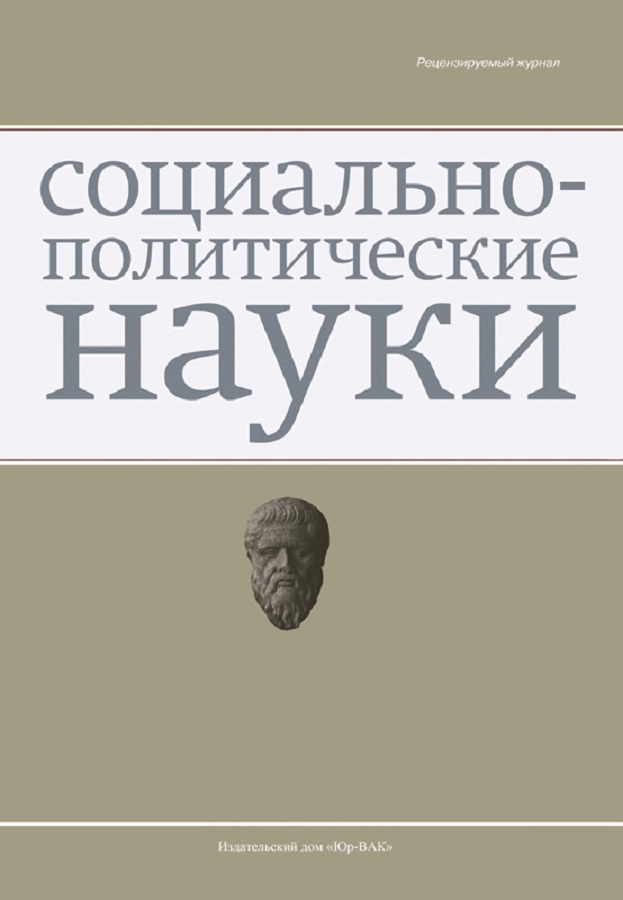The Russian Parliamentarism after the 2020 Constitutional Reform
- Authors: Zuev O.E.1, Bakhlov I.V.1
-
Affiliations:
- Ogarev Mordovian State University
- Issue: Vol 13, No 4 (2023)
- Pages: 74-79
- Section: Political Institutions, Processes and Technologies
- URL: https://journals.eco-vector.com/2223-0092/article/view/583452
- DOI: https://doi.org/10.33693/2223-0092-2023-13-4-74-79
- ID: 583452
Cite item
Abstract
The article examines the changes in the system of organization of legislative power in the Russian Federation after the adoption of amendments to the 1993 Constitution in 2020. The author analyzes the main aspects of the constitutional transformation of parliamentarism in Russia, studies changes in the powers of the chambers of the Federal Assembly of the Russian Federation, discussions on the formation of new interpretations of public power and governance. The process of state-building and strengthening of the vertical of power is proceeding progressively, systematically, within the framework of the general vector of stable development of the state, as well as branches of government. Based on the results of the study, the author provides an exhaustive assessment of the main results of the constitutional reform in terms of modernizing the model of Russian parliamentarism carried out by the Russian legislator.
Full Text
About the authors
Oleg E. Zuev
Ogarev Mordovian State University
Email: sura75_2010@mail.ru
ORCID iD: 0009-0004-9643-0634
postgraduate student at the department of general history, political science and regional studies
Russian Federation, SaranskIgor V. Bakhlov
Ogarev Mordovian State University
Author for correspondence.
Email: bahlov@mail.ru
ORCID iD: 0000-0001-6886-5762
doctor of political sciences, professor, head of the department of general history, political science and regional studies
Russian Federation, SaranskReferences
- Avakyan S.A. Constitutional reform 2020 and Russian parliamentarism: Reality, decisions, expectations. Vestnik MGOU. 2020. No. 3. Pp. 7–33. (In Rus.)
- Badirov E.V. General characteristics of the development of the legal foundations of public administration in connection with the adoption of amendments to the Constitution of the Russian Federation. Bulletin of the Barnaul Law Institute of the Ministry of Internal Affairs of Russia. 2022. No. 2 (43). Pp. 73–75. (In Rus.)
- Voronov A.M., Kalashnikov S.V. Amendments to the Constitution of the Russian Federation: Goals, procedure for adoption and consequences. Modern Science: Actual Problems of Theory and Practice. Series: Economics and Law. 2020. No. 4. Pp. 148–155. (In Rus.)
- The Constitution of the Russian Federation. Adopted by popular vote on December 12, 1993, as amended in 2020. SZ RF. 2014. No. 31. Art. 4398. (In Rus.)
- Madaev E.O. Theoretical and legal problems of introducing the term “Senator” into the Constitution of the Russian Federation. Prologue: Journal of Law. 2020. No. 3. Pp. 63–71. (In Rus.)
- Medvedeva T.P. Legal status of the Federation Council in the light of amendments to the Constitution of the Russian Federation. Legal Science and Practice: Bulletin of the Nizhny Novgorod Academy of the Ministry of Internal Affairs of Russia. 2020. No. 3. Pp. 195–200. (In Rus.)
- Pisarev A.N. The Russian model of the form of government in the light of the constitutional reform 2020: Presidential or semi-presidential republic. Education and Law. 2020. No. 9. Pp. 20–28. (In Rus.)
- Pronin P.A. Influence of constitutional amendments on the development of parliamentarism in the Russian Federation. Bulletin of the Ivanovo State University. Series: Natural, Social Sciences. 2022. No. 1. Pp. 96–98. (In Rus.)
- Tushkanov I.V., Fantrov P.P., Gavrilova V.D., Shinkaruk V.V. Law on amendments to the Constitution of the Russian Federation in the political and legal mechanism of development of the Russian State. Law and Practice. 2020. No. 3. Pp. 42–46. (In Rus.)
- Shulzhenko Yu.L. 2020 amendments to the Constitution of the Russian Federation and parliamentarism. Gaps in Russian Legislation. 2023. Vol. 16. No. 2. Pp. 48–54. (In Rus.)
Supplementary files









